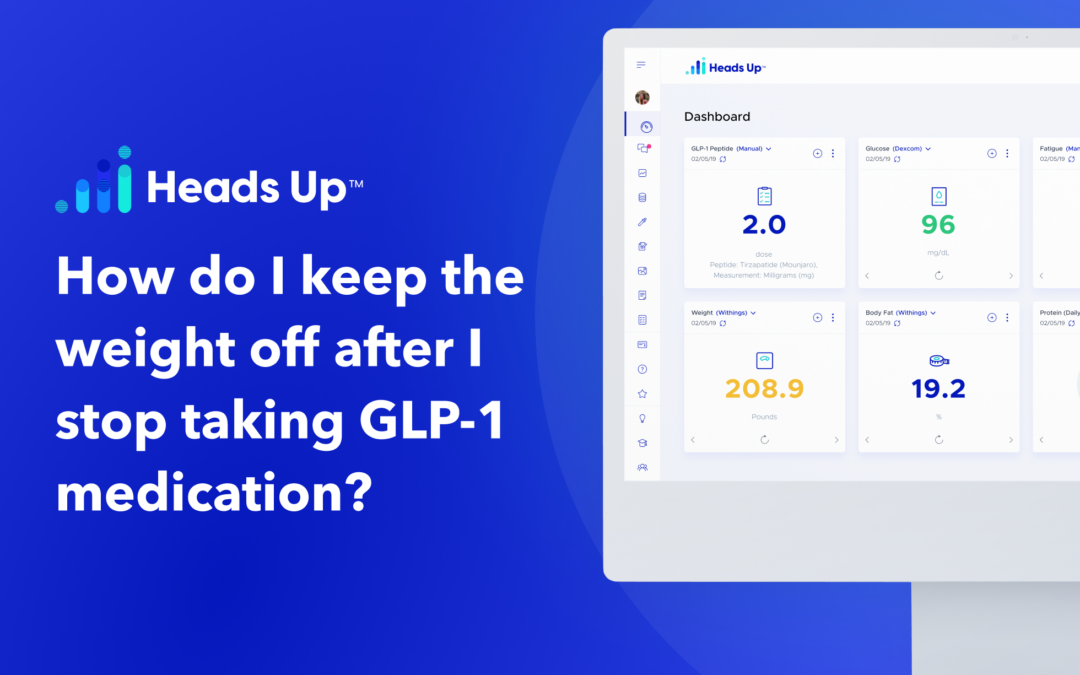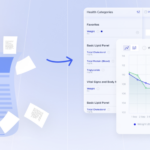Obesity is a chronic health condition that requires ongoing management. For most people who struggle with obesity, weight management will always be a concern.
GLP-1 medications are meant to be used long-term for obesity. However, some people want to stop taking the medication once they have achieved their goals or have to stop the medication due to insurance reasons.
Before you stop taking a GLP-1 medication speak to your healthcare provider about the best way to transition off the medication so you don’t end up gaining the weight back.
Tips for Maintaining Weight Loss
If you decide you want to transition off of your GLP-1 medication and want to prevent weight regain, it is essential to maintain a healthy lifestyle. Many people quickly go back to old habits after losing weight, which means the weight will quickly come back on.
To maintain your weight loss, there are a few steps you can take. These include:
- Continue to follow a calorie-controlled diet. Weight loss can slow down your metabolism. This means that even if you reach your goal weight, you may need to continue to eat less than a person who was never overweight. This means following a calorie-controlled diet long term.
- Reduce carbohydrates and increase protein. A 2016 study found that lower carbohydrate, high protein diets help increase satiety, helping you keep calories under control more easily. A moderate carbohydrate diet of less than 150 grams of carbs per day, also helps control blood sugar.
- Eat more fiber. In addition to protein, eating high-fiber foods is a great way to control calorie intake. Humans cannot digest fiber, which means it provides a feeling of fullness without any additional calories. Fruits, vegetables, and whole grains are excellent sources of fiber. Aim for at least 25-35 grams per day.
- Learn to love exercise. Research has found that vigorous physical activity for at least 150 minutes a week helps support weight maintenance.
- Sleep. Lack of sleep has been connected to blood sugar imbalance, increased inflammation, and a craving for sweets.
- Manage stress. Chronic stress also increases blood sugar, inflammation, and a craving for high-carbohydrate foods. When you actively manage stress by exercising, meditation, or doing activities you enjoy, this can help you sleep better and make it easier to choose foods that support your health goals.
Finally, it is important to have realistic expectations about weight loss and weight maintenance. A 2022 study found that most people who stopped taking a GLP-1 medication regained about ⅔ of the weight lost within one year. The study does note that overall those who used the medication kept a greater percentage of the weight off when compared to a placebo group that did not use the medication to lose weight.
Even if you do not keep all the weight off, consider continuing healthy lifestyle habits that can improve your health more than maintaining a specific number on the scale. Work with your healthcare provider or a registered dietitian who can help create a personalized plan for you.
References:
- Jastreboff, A. M., Kotz, C. M., Kahan, S., Kelly, A. S., & Heymsfield, S. B. (2019). Obesity as a Disease: The Obesity Society 2018 Position Statement. Obesity , 27(1), 7–9.
- Hall, K. D., & Kahan, S. (2018). Maintenance of Lost Weight and Long-Term Management of Obesity. The Medical Clinics of North America, 102(1), 183–197.
- Hu, T., Yao, L., Reynolds, K., Niu, T., Li, S., Whelton, P., He, J., & Bazzano, L. (2016). The effects of a low-carbohydrate diet on appetite: A randomized controlled trial. Nutrition, Metabolism, and Cardiovascular Diseases: NMCD, 26(6), 476–488.
- Cox, C. E. (2017). Role of Physical Activity for Weight Loss and Weight Maintenance. Diabetes Spectrum: A Publication of the American Diabetes Association, 30(3), 157–160.
- Lim, Y. C., Hoe, V. C. W., Darus, A., & Bhoo-Pathy, N. (2018). Association between night-shift work, sleep quality and metabolic syndrome. Occupational and Environmental Medicine, 75(10), 716–723.
- Hui, H., Farilla, L., Merkel, P., & Perfetti, R. (2002). The short half-life of glucagon-like peptide-1 in plasma does not reflect its long-lasting beneficial effects. European Journal of Endocrinology / European Federation of Endocrine Societies, 146(6), 863–869.



















